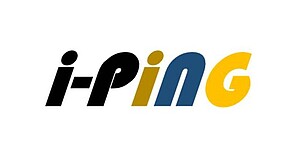Structured doctoral programs / graduate colleges
i-Ping
International graduate college in the didactics of natural and social sciences
The Swiss-German graduate college "i-ping", located at the Universities of Education of Lucerne and Heidelberg, brings together the two partner universities in promoting young researchers. 12 doctoral students and 10 professors from Heidelberg and Lucerne work on a total of 12 research projects. The i-ping college enables doctoral students to participate in the research infrastructure of both universities. Particularly, research expertise from the didactics of the subjects of biology, chemistry, German, history, mathematics, philosophy, physics, and general studies (‘Sachunterricht’) flow into the college. The spokespersons for the college Professor Dr. Dorothee Brovelli, Professor Dr. Markus Rehm, and Professor Dr. Markus Wilhelm have known the structures of both universities for many years. Thanks to the funding from Lucerne they can now further develop the cooperation between the two universities, especially in research. It is the college’s aim to enable doctoral students to have an effective doctoral phase. The accumulation of research expertise from both universities facilitates not only an intensive support and advice but also extensive further training offers. Each doctoral candidate is, furthermore, supervised by a Swiss-German tandem.

EKoL
College on effective competence diagnosis in teacher training to promote successful competence acquisition in (subject) teaching
The goal is to obtain and develop a standardized diagnosis and modeling of teacher competence during the first and second phase of teacher training for the state Baden-Württemberg. For this purpose, a standardized test instrument for competence assessment is developed, validated, and used by teaching students and trainees. The sub-projects of the college examine the competencies of teachers in the subjects German, history, mathematics, natural sciences, and engineering. In order to be able to compare the competences of prospective teachers across these subjects, we focus on measuring subject-specific didactic knowledge and competences in situ and their interdependencies with the heterogeneity of students.
The college not only examines the effects of the professionalization process between the start of the studies and the career start in natural science and humanities disciplines in an empirical longitudinal study. The design can also be used to compare cohorts of prospective teachers.
A particular concern of EKoL is the promotion of young researchers. We rely on a well-structured doctoral program that is linked to a systematic offer of training activities. Thereby, a triad of the disciplines educational science (school and special education), educational psychology, and subject-specific didactics can develop interdisciplinarily. More information is available here.
DiaKom
Graduate college "Diagnostic Competence of Teachers: Determinants, Structure, and Promotion (DiaKom)"
The college is dedicated to uncovering determinants and structures of diagnostic competence and to identify possibilities to promote it in teachers. The distinctions between diagnostic dispositions (knowledge, motivation), processes of diagnostic thinking (perception, interpretation, action), and the performance of diagnostic action allow for a systematic access to the diverse aspects of this construct bundle.
Twelve sub-projects combine recent research approaches and use techniques of competence modeling, of capturing judgment accuracy, and of the experimentally controlled variation of relevant determinants on the teacher side. By bringing psychology, educational science, and subject didactics together, the college aims at deepening and systemizing the empirical and theoretical understanding of diagnostic competence. You can find more information here.
From subject-sensitive language teaching to language-sensitive specialized teaching
Doctoral college "German as a foreign language / German as a second language (DaF / DaZ): From subject-sensitive language teaching to language-sensitive subject teaching"
The doctoral college "From subject-sensitive language teaching to language-sensitive subject teaching" gives the universities of teacher education the task of jointly integrating the results of various doctoral theses in sub-projects into a further education module in the field of German as a second language. At the Heidelberg University of Education the sub-project "language support through specialized teaching" is located. It brings together the know-how from the project "Individual writing consulting in the writing of factual text summaries" to promote writing, funded by the city of HD, and the instrument “Satzleiste”, which was since 2014 originally developed for preparatory classes. The goal is to enable individuals who learn German as a second language to work on vocabulary and grammar acquisition while writing about subject content.




